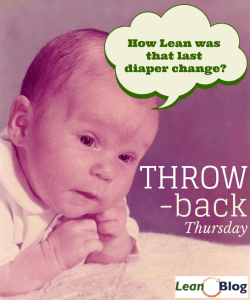 Today is another “Throwback Thursday” post where I revisit posts from the past. Friday and Saturday, I'm going to be attending the “Patient Safety, Science & Technology Summit” in Irvine, California.
Today is another “Throwback Thursday” post where I revisit posts from the past. Friday and Saturday, I'm going to be attending the “Patient Safety, Science & Technology Summit” in Irvine, California.
I won't be speaking, but I'll be participating and networking in my role as a board member for the Louise H. Batz Patient Safety Foundation, which is based here in San Antonio. Laura Townsend, founder and CEO of the foundation, spoke at last year's event and she'll be attending, as will their COO John Burnam.
Laura's mother, Louise Batz, died as the result of a medical error after a routine knee-replacement surgery here at a San Antonio hospital. You can see / hear about the story or read about what happened here.
Laura and her family weren't looking for retribution or punishment for what happened to Louise Batz. They channeled their energy into helping others, partnering with a growing number of hospitals to distribute a very helpful guidebook, The Batz Guide for Bedside Advocacy.
A friend of mine here in San Antonio had surgery last year, so I gave her the Batz Guide and she used it through her inpatient stay of two or three days. After she got home, she expressed her frustration about some aspects of her care — “It's amazing how much the hospital wanted me to manage my own care while I was on narcotics!”
There's a place for “engaged patients,” but her implication was that the hospital wasn't taking care of her well enough. She realized these are system problems, not “bad nurse” problems. The Batz Guide was helpful for her and her family, to know what to keep track of and what questions to ask. It's a shame that patients and families need to take defensive measures, but that's today's reality.
One reason I'm excited to be on the Batz Foundation board is that they have no anger toward the medical community or the hospital or staff where Louise tragically died. They show their love for others by helping others. We see similar mindsets and actions being driven by two different parents who lost children to medical errors – Chris Jerry and Sorrel King.
When caring, well-educated, hard-working healthcare professionals are involved in a medical error, these are more often than not SYSTEMIC problems, caused by poor processes, overwork, and other factors. Blaming or punishing an individual might feel good, but that's usually not the just outcome and it usually won't do anything to protect others. We need to fix the system and processes and blame and punishment interfere with that in so many ways.
So, here's a collection of posts from previous years on this topic:
-
A Pharmacist's Jail Cell Interview – What Good Does Blame Do? (2010)
-
Negligent People or a Bad System Leading to Surgical Errors? (2013)
-
Systems in Place to Prevent These Medication Errors? Seems Not… (2011)
-
Lean Thinking: We Don't Blame Individuals for Systemic Errors (2014)
What can we do in 2015 to continue shifting the medical culture (and society) away from “naming, blaming, and shaming” and toward proactive system improvements that will actually prevent future errors?
What do you think? Please scroll down (or click) to post a comment. Or please share the post with your thoughts on LinkedIn – and follow me or connect with me there.
Did you like this post? Make sure you don't miss a post or podcast — Subscribe to get notified about posts via email daily or weekly.
Check out my latest book, The Mistakes That Make Us: Cultivating a Culture of Learning and Innovation:









